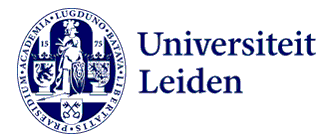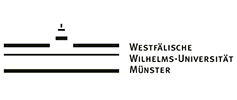Constitutional Court and The Past Conflicts in Post- Authoritarian Indonesia
DOI:
https://doi.org/10.31078/consrev913Keywords:
Conflict-Resolution, Constitutional Court, Democracy, Human Rights, Judicial Review, Modality, Post-Authoritarianism, TrajectoryAbstract
The fall of the New Order authoritarian regime in Indonesia was marked by the changing landscape of conflict resolution. In a more democratic setting, “Reformasi” regime has installed democratic institutions including the formation of the Constitutional Court. While the newly established court was celebrated as relatively successful in terms of defending human rights, its role in resolving the abused past is questionable. The new Reformasi regime inherits wounds and scars from the abuse committed by the previous iron fist regime. This paper aims to analyze the Constitutional Court’s roles as a conflict-resolution body in dealing with the past gross violation of human rights in the light of Indonesian transitional justice. In that regards, this paper assesses the Court’s decisions and how far it could answer the victims’ call for justice. This paper found that regardless of the Court’s intentions, the court’s decisions still require further executive or legislative policies. The nature of the court doesn’t bring instant enjoyment for the “winning” party to be benefited from the decisions. In short, the importance for the victims of past abuse of power as stated in the Court’s decisions still has not been translated into justice. At the same time, this also indicates how far the Court is able to resolve this kind of social conflict: “justice delayed, justice denied.” In a more Galtungian’s perspectives, there is a gap between meta-conflict to be deployed into original-conflict. This paper suggests that to overcome such issues, a bridge to reconnect the two should be built. In this context, the changing regime from New Order to Reformasi should be coupled with a holistic approach of transitional justice tools and mechanisms. More importantly, to urge the delivery of justice for those who suffered.
References
Arsil, Rositawati, et.al. Penafsiran Terhadap Pasal 156A Kitab Undang-Undang Hukum Pidana Tentang Penodaan Agama (Analisis Hukum dan Hak Asasi Manusia) [Interpretation of Article 156A of the Criminal Code on Blasphemy of Religion (Legal and Human Rights Analysis)]. Jakarta: Leip, 2018.
Aspinall, Edward. “The Irony of Success.” Journal of Democracy 21, no. 2 (April 2010), https://doi.org/10.1353/jod.0.0157.
Asshiddiqie, Jimly. Gagasan Konstitusi Sosial: Institusionalisasi dan Konstitusionalisasi Kehidupan Masyarakat Madani [The Idea of Social Constitution: Institutionalization and Constitutionalization of Civil Society Life]. Jakarta: Pustaka LP3ES, 2015.
Claes, Monica. “The Validity and Primacy of EU Law and the ‘Cooperative Relationship’ between National Constitutional Courts and the Court of Justice of the European Union.” Maastricht Journal of European and Comparative Law 23, no. 1 (2016): 151-169, https://doi.org/10.1177/1023263X1602300110.
Constitutional Court Decision Number 011-017/PUU-I/2003 (Indonesian Constitutional Court).
Constitutional Court Decision Number 013/PUU-I/2003 (Indonesian Constitutional Court).
Constitutional Court Decision Number 065/PUU-II/2004 (Indonesian Constitutional Court).
Constitutional Court Decision Number 006/PUU-IV/2006 (Indonesian Constitutional Court).
Constitutional Court Decision Number 18/PUU-V/2007 (Indonesian Constitutional Court).
Constitutional Court Decision Number 29/PUU-V/2007 (Indonesian Constitutional Court).
Constitutional Court Decision Number 75/PUU-XIII/2015 (Indonesian Constitutional Court).
Dixon, Rosalind. “Constitutional Drafting and Distrust.” International Journal of Constitutional Law 13, no. 14 (2015): 819-846, https://doi.org/10.1093/icon/ mov068.
Faiz, Pan Mohamad. “Mengawal Demokrasi Melalui Tinjauan Konstitusi: Sembilan Pilar Demokrasi Putusan Mahkamah Konstitusi [Guarding Democracy through a Review of the Constitution: Nine Pillars of Democracy Constitutional Court Decisions].” ELSAM. Published February 6, 2015.
Fraser, Nancy and Axel Honneth. Redistribution or Recognition? A Political- Philosophical Exchange. New York: Verso, 2003.
Fraser, Nancy. “Rethinking Recognition.” New Left Review 3 (May-June 2000).
Gaffar, Janedri M. “Peran Putusan Mahkamah Konstitusi dalam Perlindungan Hak Asasi Manusia terkait Penyelenggaraan Pemilu [The Role of Constitutional Court Rulings in the Protection of Human Rights Related to the Implementation of Elections].” Jurnal Konstitusi 10, no. 1 (May 2016), https://doi.org/10.31078/jk1011.
Galtung, Johan. “Institutionalized Conflict Resolution, A Theoretical Paradigm.” Journal of Peace Research 2, no. 4 (December 1965),– https://www.jstor.org/ stable/422861.
Galtung, Johan. “Violence, Peace, and Peace Research.” Journal of Peace Research 6, no. 3 (1969): 167-191, https://www.jstor.org/stable/422690.
General People’s Assembly Decree V/MPR/2000 on Promotion of National Unity (Republic of Indonesia).
General People’s Assembly Decree X/MPR/1998 on Development Reform to National Normalization (Republic of Indonesia).
Ginsburg, Tom, and Tamir Moustafa, eds. Rule by Law: The Politics of Courts in Authoritarian Regimes. New York: Cambridge University Press, 2008.
Harrington, John, and Ambreena Manji. “Restoring Leviathan? The Kenyan Supreme Court, Constitutional Transformation, and the Presidential Election of 2013.” Journal of Eastern African Studies 9, no. 2 (2015): 175–192, https:// doi.org/10.1080/17531055.2015.1012439.
Hedling, Nora. A Practical Guide to Constitution Building: The Design of the Judicial Branch. Sweden: Bulls Graphics, 2011.
Hein, Michael. “Constitutional Conflicts between Politics and Law in Transition Societies: A Systems-Theoretical Approach.” Studies of Transition States and Societies 3, no. 1 (2011), https://nbn-resolving.org/urn:nbn:de:0168- ssoar-363991.
Hendriyanto. Law and Politics of Constitutional Courts, Indonesia and the Search for Judicial Heroes. New York: Routledge, 2018.
Heryanto, Ariel. State Terrorism and Political Identity in Indonesia, Fatally Belonging. New York: Routledge, 2006.
Hidayat, Arief. “Negara Hukum Berwatak Pancasila [State of Law with Pancasila Character].” Speech Delivered in Jakarta, November 14, 2019. https://www. mkri.id/index.php?page=web.Berita&id=16801.
Hilbink, Lisa. Judges Beyond Politics in Democracy and Dictatorship, Lessons From Chile. New York: Cambridge University Press, 2007.
Honneth, Axel. The Struggle for Recognition, The Moral Grammar of Social Conflicts. Cambridge: The MIT Press, 1995.
Horowitz, Donald L. “Constitutional Courts: A Primer for Decision Makers.” Journal of Democracy 17, no. 4 (2006): 125–37, https://doi.org/10.1353/ jod.2006.0063.
Huda, Ni’matul, Wahyuni, Sri, and Firdausy, Carina. “The Urgency of the Constitutional Preview of Law on the Ratification of International Treaty by the Constitutional Court in Indonesia”. Heliyon 7 (2021).
Huda, Ni’matul. Politik Ketatanegaraan Indonesia; Kajian Terhadap Dinamika Perubahan UUD 1945 [Indonesian Constitutional Politics; Study of the Dynamics of Changes to the 1945 Constitution]. Yogyakarta: FH UII Press, 2003.
ICTJ & Kontras. "Derailed: Transitional Justice in Indonesia Since the Fall of Soeharto." Report, ICTJ, Kontras, 2011.
Jădăneanț, Alexandru. “The Collapse of Constitutional Legalism: Racial Laws and the Ethno-Cultural Construction of National Identity in Romania during World War II.” Procedia - Social and Behavioral Sciences 183 (2015): 53-59, https://doi.org/10.1016/j.sbspro.2015.04.945.
Juwana, Hikmahanto. “Special Report Assessing Indonesia’s Human Rights Practice in the Post-Soeharto Era: 1998-2003.” Singapore Journal of International & Comparative Law (2003).
Kelsen, Hans. “Pure Theory of Law and Analytical Jurisprudence.” Harvard Law Review 55, no. 1 (November 1941): 50-1, https://doi.org/10.2307/1334739.
Klare, K.E. “Legal Culture and Transformative Constitutionalism.” South African Journal on Human Rights 14 (1998): 146, https://doi.org/10.1080/02587203.1 998.11834974.
Komnas HAM. Merawat Ingatan Menjemput Keadilan, Ringkasan Eksekutif Peristiwa Pelanggaran HAM yang Berat [Caring for Memory Picks Up Justice, Executive Summary of Serious Human Rights Violations]. Jakarta: Tim Publikasi Komnas HAM [Komnas HAM Publication Team], 2020.
Laksono, Fajar. “Relasi Antara Mahkamah Konstitusi dengan Dewan Perwakilan Rakyat dan Presiden Selaku Pembentuk Undang-Undang (Studi terhadap Dinamika Pelaksanaan Putusan Mahkamah Konstitusi melalui Legislasi Tahun 2004-2015) [The Relationship Between the Constitutional Court and the House of Representatives and the President as Legislator (Study of the Dynamics of Implementation of Constitutional Court Decisions through Legislation 2004-2015)].” PhD Thesis, PDIH FH University of Brawijaya Malang, 2017.
Lawler, Peter. “A Question of Values: A Critique of Galtung’s Peace Research.” Interdisciplinary Peace Research 1, no. 2 (October 1989), https://doi. org/10.1080/14781158908412711.
Lay, Cornelis. “Pancasila, Soekarno, dan Orde Baru.” Prisma 32, no. 2-3 (2013). Linz, Juan J. Totalitarian and Authoritarian Regimes. London: Lynne Rienner
Publishers, 2000.
Loughlin, Martin. “The Silences of Constitutions.” International Journal of
Constitutional Law 16, no. 3 (2018): 693-713.
Manji, Ambreena. “The Grabbed State: Lawyers, Politics and Public Land in
Kenya.” Journal of Modern African Studies 50, no. 4 (2012): 533-563.
Martitah. Mahkamah Konstitusi: Dari Negative Legislature ke Positive Legislature? [Constitutional Court: From Negative Legislature to Positive Legislature?]. Jakarta: Konstitusi Press, 2013.
Marzuki, Suparman. Tragedi Politik Hukum HAM [Human Rights Legal Political Tragedy]. Yogyakarta: Pustaka Pelajar, 2011.
Mietzner, Marcus. “Political Conflict Resolution and Democratic Consolidation in Indonesia: The Role of the Constitutional Court.” Journal of East Asian Studies 10 (2010), https://doi.org/10.1017/S1598240800003672.
Pompe, Sebastian. Runtuhnya Institusi Mahkamah Agung [Collapse of the Supreme Court Institution]. Jakarta: LeIP, 2012.
Power, Thomas P. “Jokowi’s Authoritarian Turn and Indonesia’s Democratic Decline.” Bulletin of Indonesian Economic Studies 54 (2018).
Power, Thomas, and Eve Warburton (eds). Democracy in Indonesia: From Stagnation to Regression? Heng Mung Keng Terrace: ISEAS Publishing, 2020.
Pozas-Loyo, Andrea and Rios-Figueroa, Julio. “Constitutional Courts as Third- Party Mediators in Conflict Resolution: The Case of the Right to Prior Consultation in Latin American Countries.” In Institutional Innovation and the Steering of Conflicts in Latin America, edited by Jorge P. Gordin, Lucio Renno, 117. Colchester: ECPR Press, 2017.
Pratikno. “Keretakan Otoritarianisme Orde Baru dan Prospek Demokratisasi [The Cracks in New Order Authoritarianism and Prospects for Democratization].” Jurnal Ilmu Sosial dan Ilmu Politik 2, no. 2 (November 1998), https://doi. org/10.22146/jsp.11152.
Reman, J. “Colonialism and Its Racial Imprint.” Sojourn: Journal of Social Issues in Southeast Asia 35, no. 3 (2020): 463-492.
Republic of Indonesia. Law 1 PNPS 1965 on Blasphemy.
Republic of Indonesia. Law 14/1970 on Judicial Power Law.
Republic of Indonesia. Law 26/2000 on Human Rights Court Law.
Republic of Indonesia. Law 12th October 2002 on Bali Bombing.
Republic of Indonesia. Law 27/2004 on Truth and Reconciliation Commission Law.
Roux, Theunis. “Constitutional Courts as Democratic Consolidators: Insights from South Africa after 20 Years.” Journal of Southern African Studies 42, no. 1 (2016): 5–18, https://doi.org/10.1080/03057070.2015.1139683.
Satrio, Abdurrachman. “Constitutional Retrogression in Indonesia Under President Joko Widodo’s Government: What Can the Constitutional Court Do?” Constitutional Review 4, no. 2 (December 2018), https://doi.org/10.31078/ consrev425.
Schmitt, Carl. Political Theology: Four Chapters on the Concept of Sovereignty. Chicago: The University of Chicago Press, 2005.
Siahaan, Maruarar. “Mahkamah Konstitusi dalam Penegakan Hukum Konstitusi [Constitutional Court in Upholding Constitutional Law].” Jurnal Hukum 16, no. 3 (July 2009): 376, https://dx.doi.org/10.20885/iustum.vol16.iss3.art3.
Siegel, Reva B. “Constitutional Culture, Social Movement Conflict and Constitutional Change: The Case of de facto ERA.” California Law Review 94 (2006): 1323-37, https://doi.org/10.15779/Z38B97N.
Siregar, Fritz Edward. “Indonesian Constitutional Politics 2003-2013.” PhD diss., University of New South Wales, 2016.
Sudjito, Arie. “Gerakan Dimiliterisasi di Era Transisi Demokrasi Peta Masalah dan Pemanfaatan Peluang [The Militarized Movement in the Era of Democratic Transition Map of the Problems and Utilization of Opportunities].” Jurnal Ilmu Sosial dan Ilmu Politik 6, no. 1 (2022), https://doi.org/10.22146/jsp.11097.
UN Guidance Note of the Secretary General. United Nations Approach to Transitional Justice. New York: United Nations, 2010.
Wahyuningroem, Sri Lestari. “From State to Society: Democratisation and the Failure of Transitional Justice in Indonesia.” PhD diss., Australian National University, 2018.
Whittington, Richard. “Giddens, Structuration Theory and Strategy as Practice.” In Strategy as Practice, edited by Damon Golsorkhi et al., 23-43. New York: Cambridge University Press, 2015.
Wignyosoebroto, Soetandyo. “Hak-Hak Asasi Manusia: Perkembangan Pengertiannya yang Merefleksikan Dinamika Sosial-Politik [Human Rights: The Development of Their Understanding Reflecting Socio-Political Dynamics].” Masyarakat, Kebudayaan dan Politik 12, no. 4 (October 1999).
Wiratraman, Herlambang P. “Constitutional Struggles and the Court in Indonesia’s Turn to Authoritarian Politics.” Federal Law Review 50, no. 3 (2022): 16, https://doi.org/10.1177/0067205X221107404.
Zines, Leslie. “Social Conflict and Constitutional Interpretation.” Monash University Law Review 22, no. 2 (1996), https://doi.org/10.1177/0067205X100380031.
Zoelfa, Hamdan. “Mahkamah Konstitusi dan Masa Depan Negara Hukum Demokrasi Indonesia [The Constitutional Court and the Future of Indonesia’s Democratic Law State].” In Beberapa Aspek Hukum Tata Negara, Hukum Pidana, dan Hukum Islam; Menyambut 73 Tahun Prof. H. Muhammad Tahir Azhary, S.H [Several Aspects of Constitutional Law, Criminal Law, and Islamic Law; Welcoming 73 Years of Prof. H. Muhammad Tahir Azhary, S.H], edited by Hamdan Zoelva, 53. Jakarta: Kencana, 2012.
































































